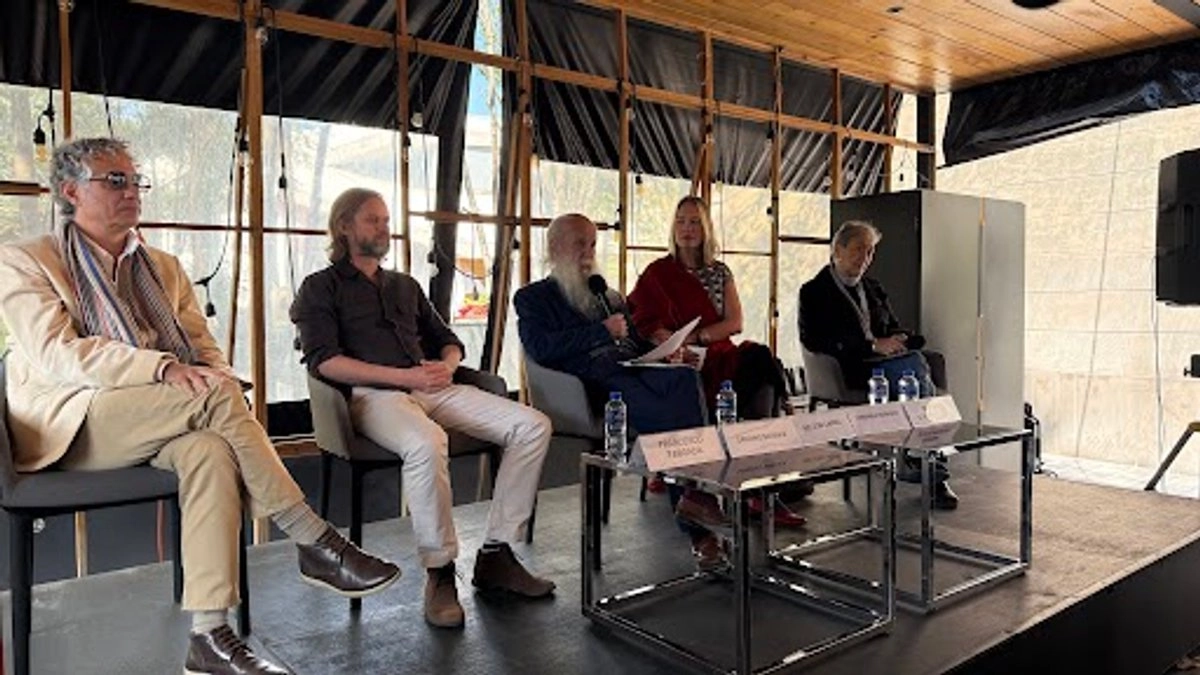With a special focus on contemporary themes, languages, and sensibilities, the 78th edition of the International Film Festival of the Cineteca Nacional reaffirms its mission to “bring audiences closer to the most remarkable works in world cinema.” This year’s lineup includes Underground by Emir Kusturica, as well as Obispo Rojo (Red Bishop), a documentary exploring the life of Sergio Méndez Arceo, the outspoken Bishop of Cuernavaca who has been “silenced and overshadowed by official church history.”
Featuring 14 films from Mexico, France, Germany, Iran, Norway, Brazil, Thailand, Spain, Ukraine, Japan, and Tunisia, the showcase runs from November 13 to 30 at the Cineteca Nacional, and from November 21 to December 11 at the Cinetecas de las Artes and Chapultepec, before touring other parts of Mexico.
Nelson Carro, Director of Programming and Promotion at the Cineteca Nacional, highlighted two Jury Prize winners from Cannes 2025 — The Sound When Falling by Mascha Schilinski and Sirat: Trance in the Desert by Oliver Laxe. Opening the festival is New French Wave by Richard Linklater, a witty homage to Jean-Luc Godard that celebrates the rebellious and inventive spirit of the legendary director of Breathless (1960).
Award-winning films and bold stories
Among the standout titles is The Disappearance of Josef Mengele, directed by Kirill Serebrennikov, based on Olivier Guez’s novel. The film offers a restrained yet powerful portrayal of the Nazi doctor’s life after World War II. The program also includes She and Her Son by Saeed Roustayi, and Dreams (Sex and Love) by Dag Johan Haugerud, the second film in his trilogy and winner of the Golden Bear at the Berlin International Film Festival.
Obispo Rojo by Francesco Taboada Tabone stands out for its use of rare archival footage to depict Méndez Arceo’s defiance of church hierarchies and authoritarian regimes. The film took four years to complete and aims to “capture the soul of its audience.”
Other selections include O Último Azul by Gabriel Mascaro; A Ghost to Serve You by Ratchapoom Boonbunchachoke; Romería by Carla Simón; Two Prosecutors by Sergei Loznitsa; Sirat: Trance in the Desert by Oliver Laxe; Underground by Emir Kusturica (30th anniversary screening); Two Strangers, Two Seasons by Shô Miyake; The Sound When Falling by Mascha Schilinski; and The Voice of Hind Rajab by Kaouther Ben Hania.
The latter, a deeply moving film by the Tunisian director, reconstructs the final hours of a six-year-old Palestinian girl killed by Israeli forces using real emergency call recordings, serving as a powerful call for peace and justice.
For Obispo Rojo, Taboada Tabone gathered previously unseen material from Nicaragua, Germany, France, Brazil, Cuba, and the Vatican. The three-hour documentary explores Méndez Arceo’s 1970s spiritual revolution — a blend of faith, humanism, and political activism that challenged the establishment.
“Méndez Arceo’s prophetic voice had immense influence, and there were attempts from the Vatican to silence his story,” said Taboada. “His message remains strikingly relevant — both politically and spiritually. The events of his time are happening again today.”
The archival footage, much of it inaccessible within Mexico, sheds new light on a figure who was as inspiring to Latin American liberation movements as he was controversial to political and religious power structures.



